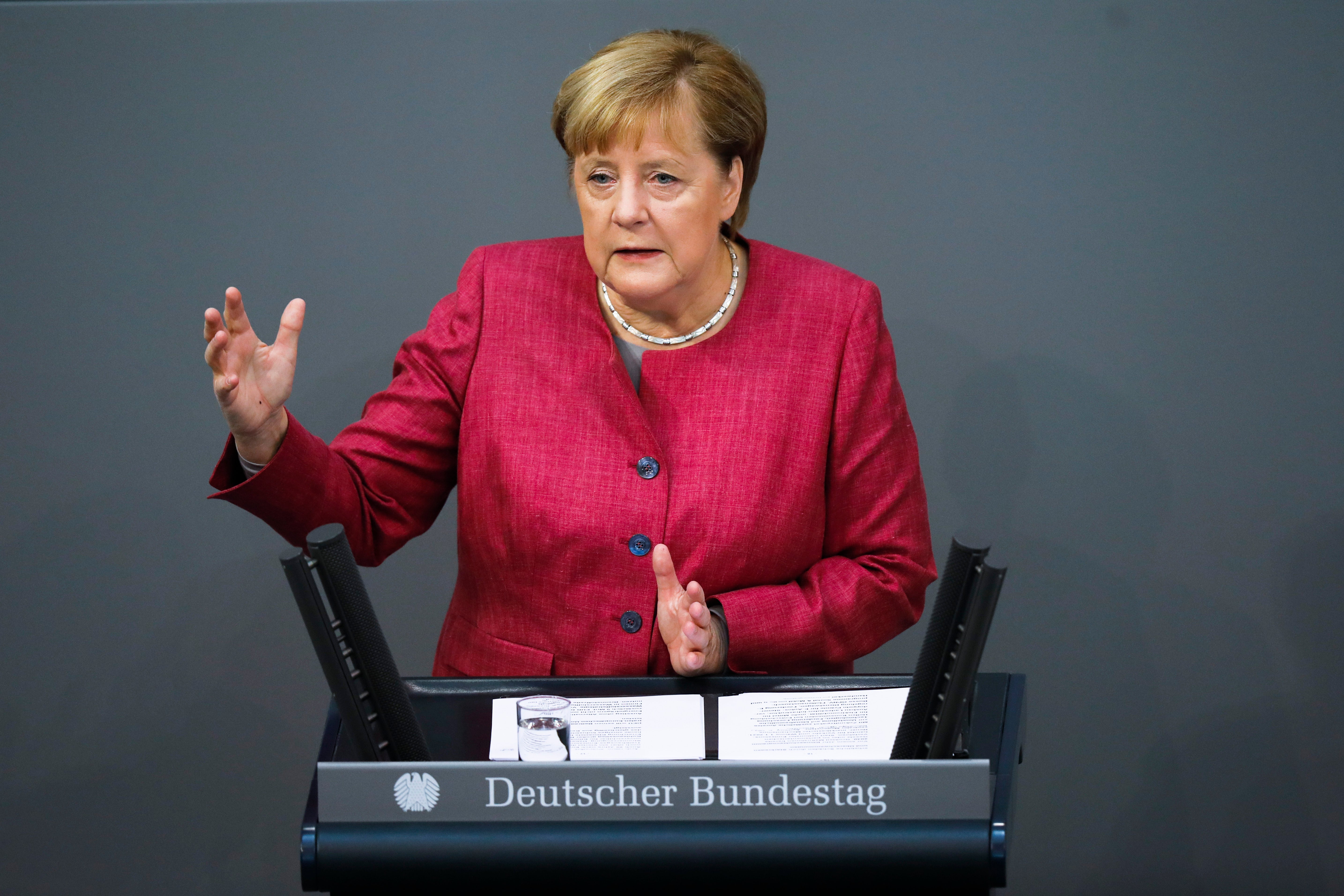Germany marks low-key 30th anniversary of reunification
Germany is marking the 30th anniversary of its reunification, drawing a generally positive picture of the progress made in knitting together east and west amid celebrations that are low-key because of the coronavirus pandemic

Your support helps us to tell the story
From reproductive rights to climate change to Big Tech, The Independent is on the ground when the story is developing. Whether it's investigating the financials of Elon Musk's pro-Trump PAC or producing our latest documentary, 'The A Word', which shines a light on the American women fighting for reproductive rights, we know how important it is to parse out the facts from the messaging.
At such a critical moment in US history, we need reporters on the ground. Your donation allows us to keep sending journalists to speak to both sides of the story.
The Independent is trusted by Americans across the entire political spectrum. And unlike many other quality news outlets, we choose not to lock Americans out of our reporting and analysis with paywalls. We believe quality journalism should be available to everyone, paid for by those who can afford it.
Your support makes all the difference.Germany is marking the 30th anniversary of its reunification on Saturday, drawing a generally positive picture of the progress made in knitting together east and west amid celebrations that are low-key because of the coronavirus pandemic.
Germany was reunited on Oct. 3, 1990, after four decades of Cold War division. East Germany joined the western federal republic less than a year after the east's communist rulers — under pressure from growing protests — opened the Berlin Wall and the rest of the highly fortified border between the two states.
While much progress has been made since then, economic and other differences between the west and the less-prosperous east still persist. A long-lasting trend of more people leaving the east than moving there has finally halted in recent years.
“We have achieved a lot in these 30 years,” Chancellor Angela Merkel who grew up in the east, told Germany's parliament this week. “We have succeeded in significantly reducing the differences in living conditions between eastern and western Germany."
“But structural differences remain,” she added. “Further efforts are necessary.”
The centerpiece of Saturday's celebrations is a ceremony in Potsdam, just outside Berlin, led by President Frank-Walter Steinmeier, with 230 guests — about one-fifth of the audience originally planned.
Merkel acknowledged that the celebrations “will be quieter than the occasion would actually deserve.”